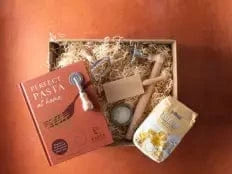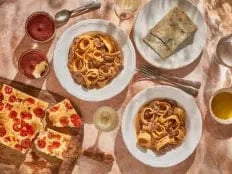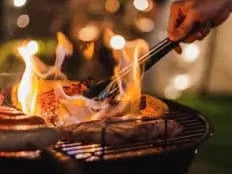5 Italian Christmas Traditions You Might Not Know
: invalid url input)
Gift-giving and Christmas trees have, for many millennia, been staples of il Natale, or Christmas in Italian. In fact, our modern consumerist definition of gift-giving is predated by Italian customs over a thousand years old, and the many cities of il bel paese have a long established history of decorating to mark the festive period. As in the past, strings of festive lights still adorn the streets today, blanketing cities under the warmth of their amber glow. The most special thing about Christmas in Italy, however, is the joy that families and friends share as they come together to mark various festivities through their gastronomic and cultural traditions.
Christmas particularly lends itself to rich regional traditions that, because of the country’s heritage, are long cultivated and reverently practiced, providing a deep and colorful fabric of continuity up to the present day.
Some such traditions are perhaps lesser known outside of the country. We’re here to shed light on 5 of these more elusive practices.
A Month of Celebrations
Christmas in Italy begins every year around the 8th of December. This celebratory day is known as ‘The Feast of the Immaculate Conception’; as religious custom would have it, it is widely believed to be the day that Mary was proverbially reborn and saved by God. Many homes choose to mark this day by erecting their Christmas tree, and presents begin to fly off the shelves as most workers have a day off to buy gifts for their loved ones. Some Italians however mark the beginning of the season with the celebration San Nicola, or St. Nicholas, the patron saint of mariners and the weak, from whom the tradition Babbo Natale and our very own St. Nicholas originates. Towns that celebrate San Nicola as their patron saint commemorate the day with the burning of fires, effigies and formal processions.
The 9 Days of Christmas
Italy marks the countdown to Christmas nine days before the official holiday in a period known as Novena. This is another period defined by religious rituals, as it was traditionally the time when shepherds journeyed to baby Jesus’s manger. Today, many children across Italy can be found on this day dressed as little shepherds, surprising homes by knocking on the door and singing Italian Christmas carols. The most significant date in this nine day period is the 24th of December: Christmas Eve.
A Feast of Fish
Either before going to or returning from mass on Christmas Eve, (Viglia di Natale) many families will indulge in ‘The Feast of the Seven Fishes’ which, as the name suggests, is a meal that consists predominately of seafood. According to the Catholics, December 24th used to be a day of fasting before Christmas which is now instead marked by eating fish. An Italian’s Christmas Day dinner is commemorated by drinks and a large feast called Cenone in Italian. The banquet varies by region, and does so with enormous diversity. Dishes range from tortellini, to lasagne; from anguilla (eel) to baccalà (cod), and from abbacchio (lamb) to bollito (boiled meats). Desserts normally follow this savoury procession, one of the most popular being the fruit and nut filled bread, Panettone. If superstition is anything to go by, it is widely held that nuts in deserts bring prosperity in terms of fertility for the coming year.
Scottish Bagpipes? The Italians Beg to Differ
Zampogne and Ceppo
Caroling remains a tradition in some Italian regions, particularly in the North. Yet, when it comes to music, perhaps nothing is more synonymous with the sound of Christmas than the bagpipes. They are played by the zampognari (bagpipers), who, in their costumes and sheepskins, rejoice in festive tunes around the squares, streets and homes of Italy.
As far as decorations are concerned, many Italian households follow the standard tradition of putting up a Christmas tree and hanging stockings by the fireplace. The old Tuscan tradition of the ceppo however predates even these. The ceppo itself is a large chunk of wood chosen and dried specifically to burn in the fireplace over the night of Christmas, around which the family anf friends gather to share simple gifts, including dried fruit, tangerines, and baked goods.
Gift Giving
Italians open gifts on different days, depending on where they live and according to their beliefs. Many people choose to exchange gifts on Christmas Day, but in some cities in Italy’s northern regions, children open gifts on the 13th of December, Saint Lucia Day. Some people wait until the 6th of January, the Epiphany, to open gifts left by the witch, La Befana.
At Pasta Evangelists, we bring a taste of Italy to your kitchen. Prepared using the freshest ingredients, our gourmet pasta dishes are perfect for those looking to enjoy restaurant-quality meals, delivered to your door, and ready in under five minutes. Order from our weekly menu today, and we’ll offer you 25% off your first delivery - simply enter the code BLOG25 at checkout.







